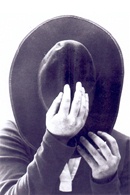All Nonfiction
- Bullying
- Books
- Academic
- Author Interviews
- Celebrity interviews
- College Articles
- College Essays
- Educator of the Year
- Heroes
- Interviews
- Memoir
- Personal Experience
- Sports
- Travel & Culture
All Opinions
- Bullying
- Current Events / Politics
- Discrimination
- Drugs / Alcohol / Smoking
- Entertainment / Celebrities
- Environment
- Love / Relationships
- Movies / Music / TV
- Pop Culture / Trends
- School / College
- Social Issues / Civics
- Spirituality / Religion
- Sports / Hobbies
All Hot Topics
- Bullying
- Community Service
- Environment
- Health
- Letters to the Editor
- Pride & Prejudice
- What Matters
- Back
Summer Guide
- Program Links
- Program Reviews
- Back
College Guide
- College Links
- College Reviews
- College Essays
- College Articles
- Back
Why identity labeling stops us from being our best selves
Consider someone saying:
“I’m not a math person, I’ve always been bad with numbers”; or, “I can’t do sports because I have no hand-eye coordination,” or, “I’m dumb, so I”ll never get good grades.”
The attitudes described above share one common root: the internalization of identity labels. We encounter the oppression of self-identity in our daily lives. Psychologist Carol Dweck, author of Mindset: The New Psychology of Success, points out that “Society is obsessed with the idea of talent and genius and people who are ‘naturals’ with innate ability.” In other words, those who are not told they’re born with certain “talents” perceive themselves as inferior. However, internalizing impressions dehumanizes our potentiality. We need to expand our horizons rather than constrict them. As children, we dream big with an unbounded mindset, regardless of what people say. But as we develop into adolescence, when the mind is most malleable, external judgments start to limit our self-conceptions. When we think we are not talented enough or not “something” enough, we put on identity labels and fall into the trap of limiting ourselves. Hearing “You’re not tall enough to play volleyball” can constrict one’s perceived potential. On the contrary, being told, “Height doesn’t determine athletic ability” can pave a road of self-belief instead of self-doubt.
But isn’t setting realistic expectations just a part of growing up? Not so: achieving success depends on your sense of your own potential, despite society’s prejudice toward “innate” ability.
In Tom Bilyeu’s interview with Trevor Moawad, the CEO of Limitless Minds, he recounts the story of one of the most successful magazine entrepreneurs. As a kid, the entrepreneur struggled academically, but he promised his mom he would try on the SAT despite the fact that he was about to flunk out of high school. Even though he wasn’t expecting to crack four digits, to his and his mom’s great surprise, he scored a 1480 out of 1600, and he went from high-school dropout to high-powered businessperson. Although this 1480 seemed to be the key to his success, the truth unfolded 12 years later. He received a letter in the mail saying that he was one of 13 people who had been sent the wrong score. His actual score was a 740. Yet being convinced he had achieved a 1480 allowed him to believe that he was meant for greatness. The spark of his success was not his “innate ability” but his mindset-driven behavior.
If identity theft is wrongfully obtaining one’s personal information, identity labeling is wrongfully limiting one’s personal potentiality. We must not fall prey to identity labeling by sacrificing our immeasurable potentiality. When we start to think we are limitless and undefinable, we are.

Similar Articles
JOIN THE DISCUSSION
This article has 0 comments.

After following the Winter Olympics of 2022, I was greatly inspired by Eileen Gu's perception of passion, dedication and unlimited potentially. In her, I witnessed the endless possibilities of our mind and body. She talked about being undefinable, not restricting oneself to a type of person. In fact, along with being a professional olympic athlete, she is also a musician, writer, feminist, and more. Seeing someone so capable made me challenge the notion of "innate ability" and the common association fo oneself to "incapabilities". Eileen Gu's mindset has always been propelled by her passion and belief that she is able to achieve anything. Since then, I have been passionate about spreading the idea of "mindset is the game changer" and encouraging people to stop labelling their own identity. Identity is meant for exploration and not boundaries.